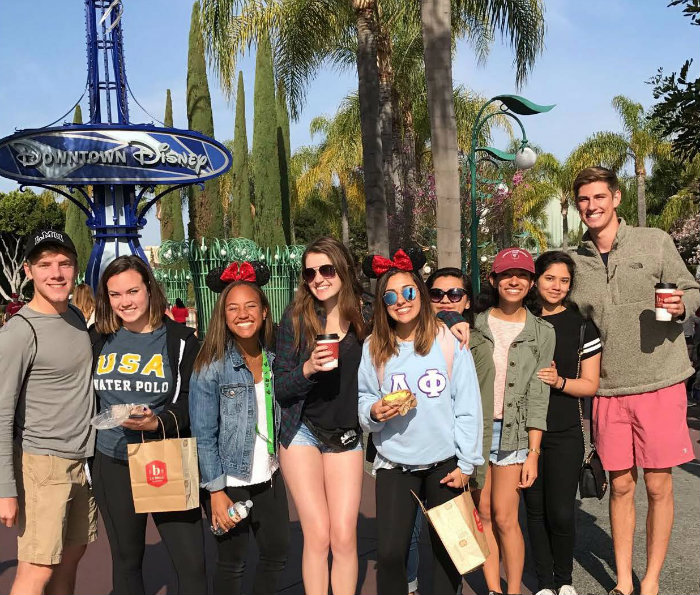
Welcome to the Political Science and International Relations Learning Community. The Learning Community is a special program designed for incoming first year students. In the Learning Community, you will build friendships with other first-year students who share your passion for politics, build relationships with your professors, immerse yourself in LMU's academic, social and political life, and explore Los Angeles.
This select group of students will take the following introductory courses together in their first year:
Fall Semester
International Relations
(POLS and IR major requirement, Understanding Human Behavior Core Curriculum Requirement)
This course offers an introduction to world politics, with an emphasis on the major theoretical approaches and some of the key empirical findings. In addition, this course provides a framework for students to begin to understand and evaluate current global issues within a context of change and continuity. Students will become familiar with the challenges involved in resolving inter-national conflict and achieving international cooperation, particularly as they translate to transnational terrorism, human rights, globalization, and the use of military force. Classes will mix lecture with active learning opportunities.
Philosophical Inquiry
(Core Curriculum Requirement)
This course introduces students to the various modes of philosophical inquiry and to the great philosophical questions that are central to a humanistic education in the Catholic intellectual tradition. More specifically, students will develop an under-standing of the fundamental metaphysical (the study of reality) and epistemological (the study of knowing) questions in the study of humankind and the interpretative skills for a life-long habit of philosophical self-reflection.
Spring Semester
Students will take either:
American Politics
(POLS major requirement)
This course is an introduction to the system of government in the United States. We examine it by focusing on some of the major controversies surrounding American politics, including: racism in America, gay rights, the quality of media coverage, the role of money in politics, the fight against terrorism, corporate corruption, the power of the Supreme Court, the treatment of low wage workers, the success of the criminal justice system. The study of these issues will help illuminate some of the central criticisms and strengths of U.S. government.
Comparative Politics
(POLS and IR major requirement)
Comparative politics is the study of domestic political institutions, processes, and behavior across countries. This course introduces students to many of the central puzzles, themes, and approaches of comparative politics to help them understand and analyze world events. It explore several key political phenomena including statehood and state failure; political economy and economic development; types of governance; democratic transition, consolidation, and breakdown; and political participation and activism.
Each Semester
Political Science Learning Community I/II
(Elective; 1 unit, credit/no credit)
This course provides students with the opportunity to get to know professors in the department and their areas of specialization. Students also learn about internships, fellowships and scholarships, and career opportunities in the field of political science and international relations.
Students in the Learning Community also have the opportunity to take part in:
- Visiting LA sites
- Political Movie Nights on campus
- Participating in volunteer work on and off campus
- Learning about international study opportunities
- Learning about internship opportunities
- Department events
For further information, please contact, Professor Feryal Cherif, Director of the Learning Community at feryal.cherif@lmu.edu